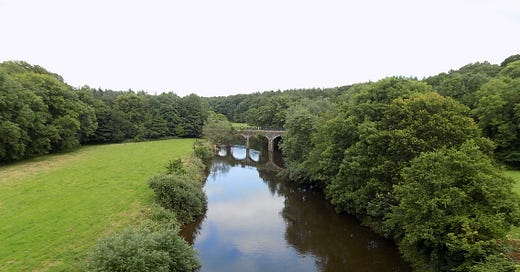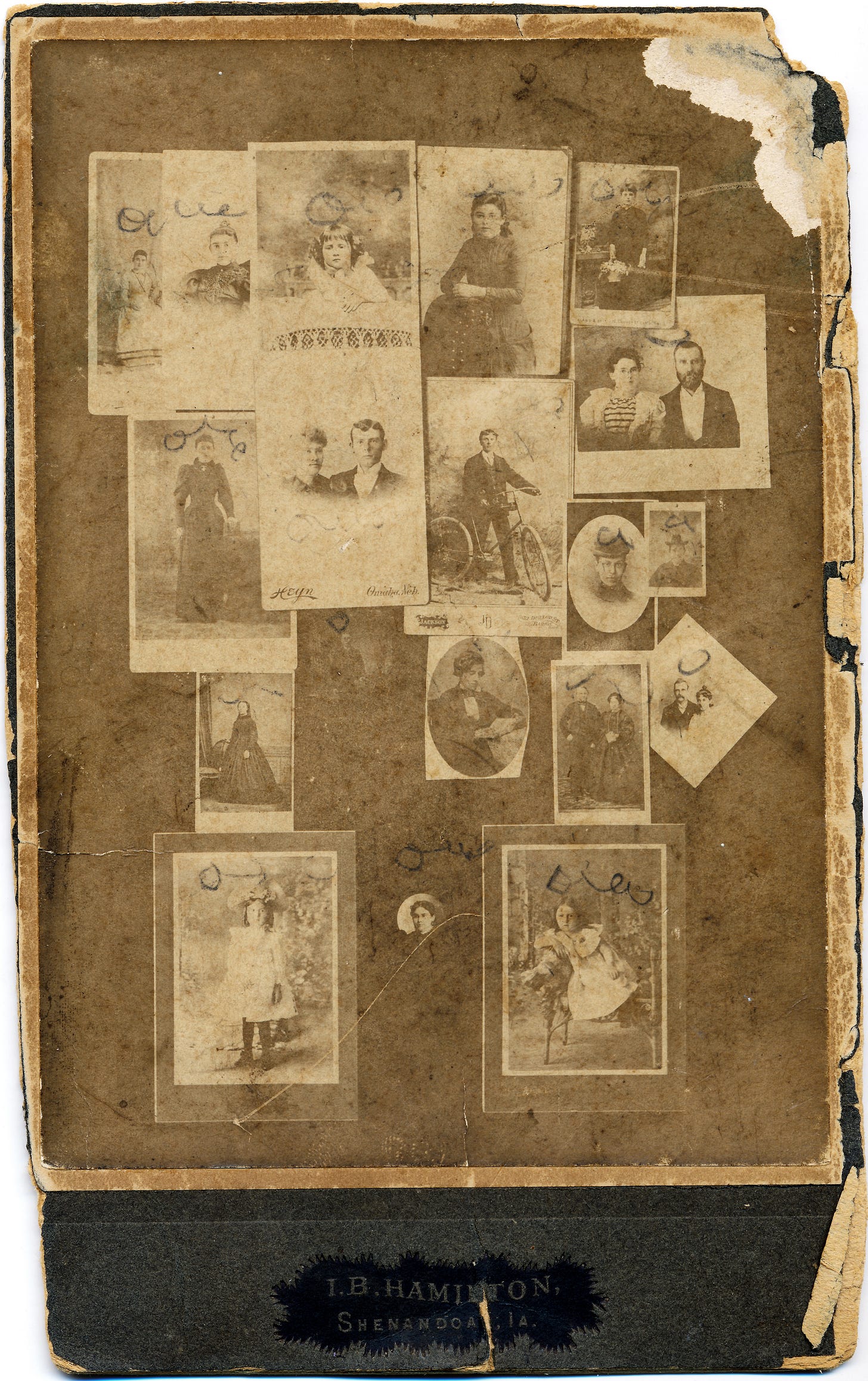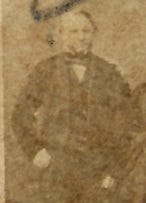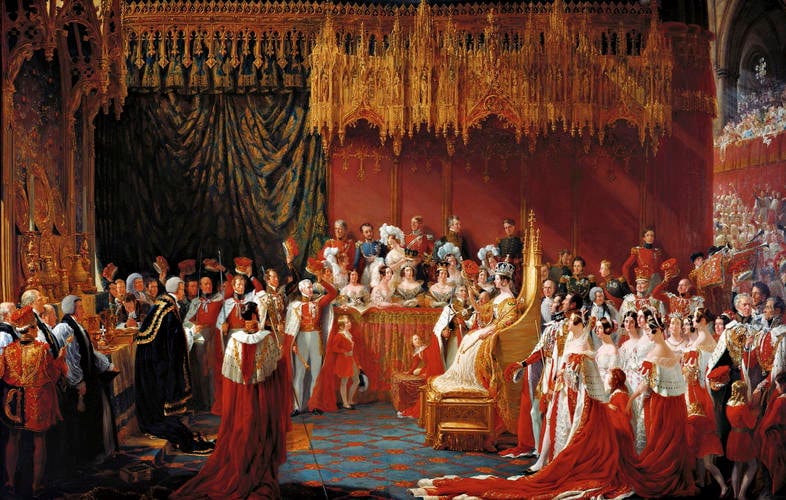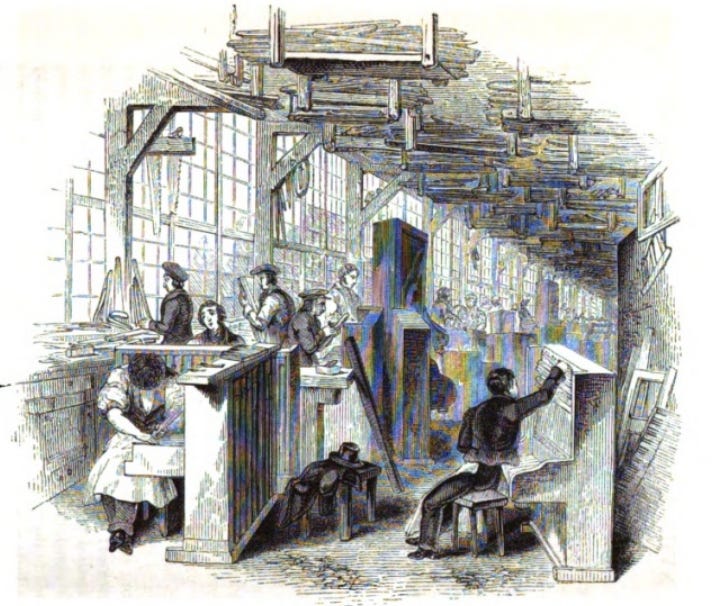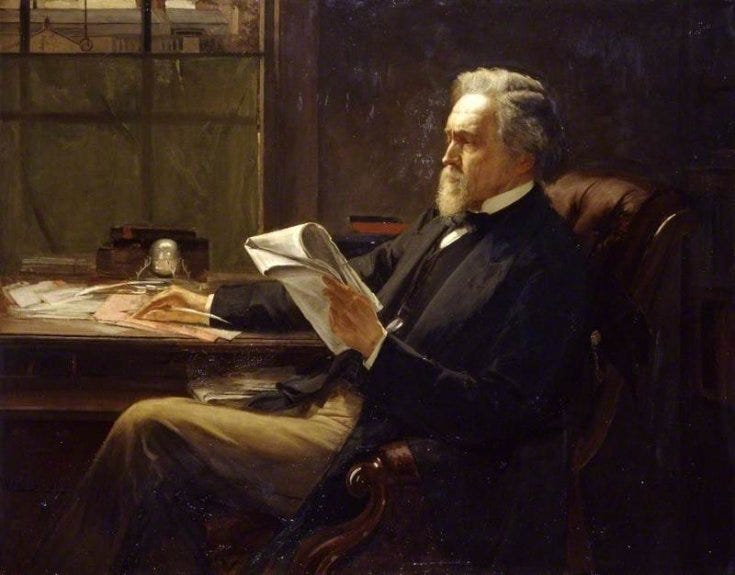As I have written before, my grandmother’s father was British. His name was William Brinsmead, and his story is one of the most interesting I have researched (that will be for another time). However, it turns out that his grandfather Henry Brinsmead was a fascinating character in his own right.
The only photograph I have of him is a very faint image which was from a unique photo montage taken circa 1900 of far older photos.
Henry was born in Devonshire in 1812, and was apprenticed to a cabinetmaker in the nearby city of Great Torrington. When he was still a young man he journeyed to London to get into the pianoforte manufacturing industry. After he had enough experience in the music theory and the construction elements of pianos, he went into business creating pianos in 1834 with his younger brother John Brinsmead as his junior partner. The two busted up their partnership by the time Queen Victoria was crowned in 1838.
Henry and John’s two businesses were both in the Soho district (near the West End of London). The word “pianoforte” was first used for the instrument because it could play both softly (piano) and loudly (forte). By the 1900’s they were just called pianos. There were already a lot of pianoforte manufacturers in London, like the famous company of Broadwood seen here:
Henry’s little brother did quite well as an entrepreneur, and launched a thriving piano business that outlasted him when John finally died in 1908. The elder brother soldiered on barely 10 blocks away as “Henry Brinsmead & Sons”. By the late 1840’s Henry’s wife Charlotte died as well as several of their small children. While this was sadly more the rule than the exception back then, Henry seemed to take a decidedly liberal turn. He began spending time with middle-class English radicals and freethinkers who often met together to discuss how conditions could be improved for the average working man and the poor. This is the same time period that Charles Dickens was writing Oliver Twist (1838), Christmas Carol (1843), and David Copperfield (1850).
Henry was interested in the ideas of both Chartism and Cooperation, and this led him into a circle of friends and acquaintances that included George Jacob Holyoake.
Holyoake is famous for being arrested in the United Kingdom on blasphemy charges, and for coining the words ‘secularism’ and ‘jingoism’. He published the freethinking newspaper called the Reasoner, which Brinsmead read. He also met Karl & Jenny Marx while they were living in London, exiled from Germany for Karl’s radical, communist views.
Holyoake also hung out at the London Literary & Scientific Institute, a coffee-house, reading-room, and lecture hall where Brinsmead got involved. Henry is shown as Chairman of the London Secular Society from the early 1850’s forward.
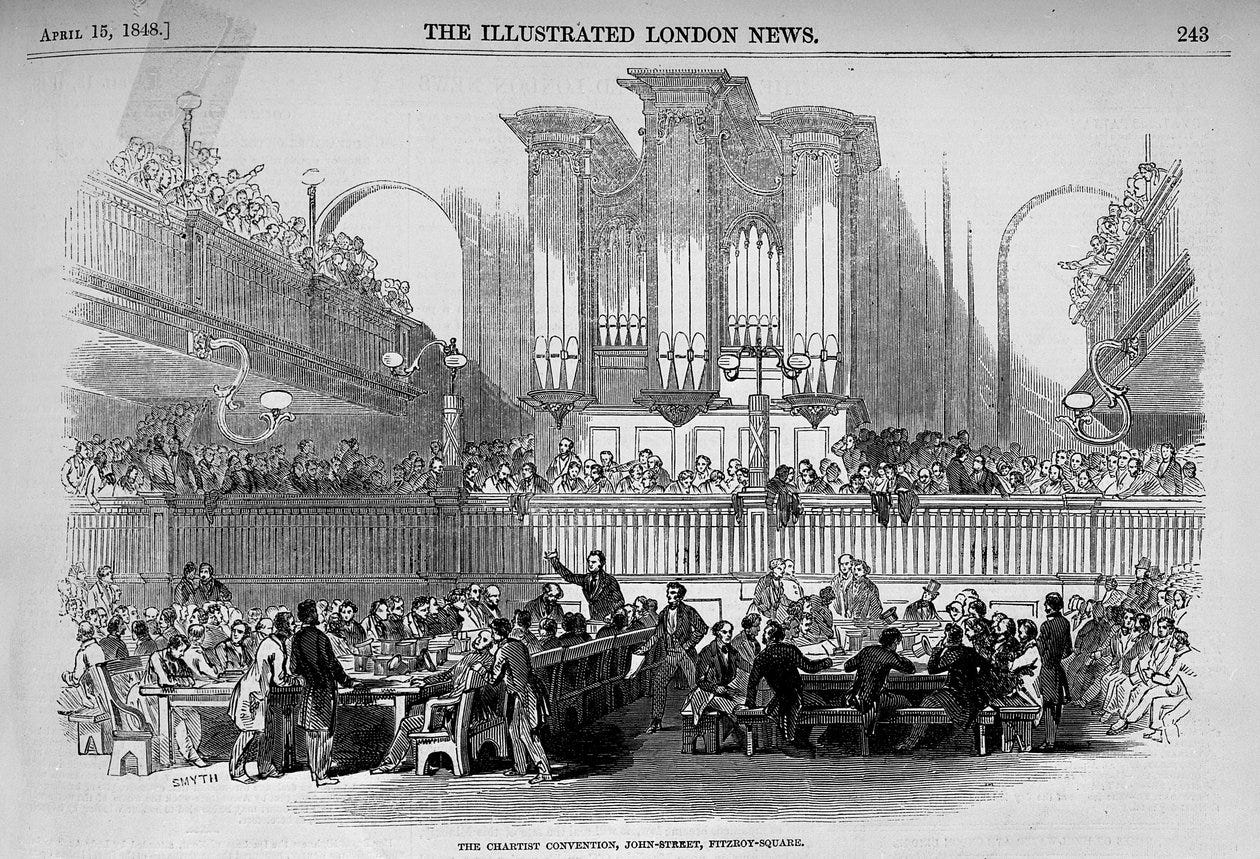
I wondered though, did he meet Karl Marx?
There was a 1850 New Year’s Eve banquet which Marx attended with other socialists of different stripes. The first English translator of the Communist Manifesto, Helen MacFarlane, was there. So was G.J. Harney and several other radicals who continued to show up at Institute events in the 1850’s after Marx had gone back to the Continent. If they never met, Brinsmead and Marx had mutual friends like Harney and Holyoake.
By the late 1850’s, Brinmead is no longer listed as part of the Secular Society, and his next marriage was in a Church of England. It’s hard to know where he landed, but by the end of his life he was probably not an atheist, although doubtless he still held to some of his ideals of the earlier days.
In the 1850’s Florence Nightingale commented on how she had visited the Secular Society in London, and had compassion on the agnostics and atheists, suggesting dialogue and compassion over their doubts.
I can connect to Karl Marx with 6 degrees of separation… what famous person can you connect to?


